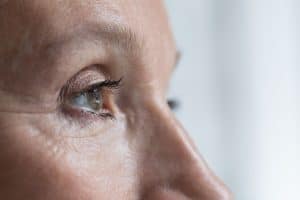
As time goes on, you may notice that your vision isn’t as crisp as it once was. Vision changes are common as you age and may cause you to wonder about the health of your eyes. While some age-related conditions can lead to minor eye issues, others may result in more serious vision problems and require treatment. Therefore, it is important to remain observant of any changes in your vision so that your eyesight can be preserved.
Below, Mark Mandel, MD, details a few of the ways the eyes change with age.
Cataracts
Cataracts occur when the otherwise transparent lens of the eye becomes opaque, which results in blurry vision. They develop over the course of time, initially impacting your distance vision, then your color vision. To save your vision, cataracts will eventually need to be treated. Fortunately, they are easily treated with cataract surgery.
Serious Eye Conditions
Serious eye conditions can begin to develop with age. These include glaucoma and diabetic retinopathy. For many patients, these conditions do not come with noticeable symptoms in the early stages. They eventually show up after damage has occurred to the eyes. Regular eye exams can help identify these conditions early, which can help save your vision as you get older.
Presbyopia
Presbyopia is a normal part of aging. The lens inside of the eye begins to lose flexibility with age, which can cause your vision to become blurry when focusing on objects a short distance away. Reading glasses are typically used to treat this age-related condition.
Smaller Pupil
The muscles that control the pupil, including its reaction to light, start to weaken over time. This can lead to pupils appearing smaller than they once were. You may also notice a decrease in the pupil’s response to light. When this happens, you can start to observe halos around sources of light, such as headlights while driving.
Dry Eyes
Because dry eyes can happen to people of all ages, you may wonder how this is specifically related to aging. However, over time, the quality of tears in the eye decreases, leaving the eyes susceptible to dryness.
Limited Peripheral Vision
The gradual loss of peripheral vision as you age is a common occurrence but can also be a sign of glaucoma. To be sure, take note of any changes in your vision and relay that information in your next eye appointment.
Schedule a Consultation
Schedule an eye exam with Bay Area LASIK and cornea specialist, Mark Mandel, MD, to discuss treatment options for your age-related eye condition. Contact us via email or by calling 877-210-2020 ext. 3 today.